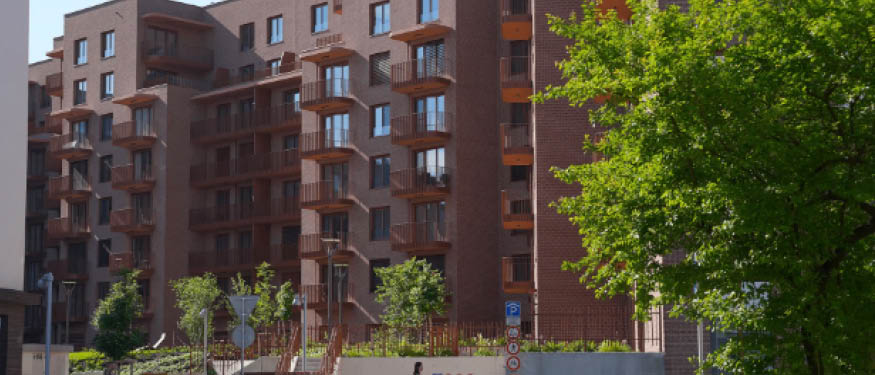Bosnia and Herzegovina (BiH) is a country in the south-east of Europe (the so-called “Balkan region”) with an area of 51,229 square kilometers. In accordance with its political and legal structure, BiH is divided into two entities (the Federation of Bosnia and Herzegovina – FBIH – and Republika Srpska – RS) and the Brcko District (BD BIH). The real estate market is a significant part of the economic activity of BiH and is governed by a set of legal regulations which follow international standards for the protection of property rights. In the course of 2022 and 2023, there was a strong investment wave in the real estate market.
The real estate market in BiH is following the global rise in property prices, but due to a lower standard of living, it is still possible to rent property at 60% lower prices than in the European Union. According to the Deloitte Property Index 2023, BiH ranks highest in terms of affordability of real estate with an average price of EUR 1,237 per square meter, followed by Greece (EUR 1,330) and Romania (EUR 1,417).
Regulations Governing Real Estate Purchase
1) The Act of Law on Regulating Property Rights (harmonized within both mentioned entities and at the district level) provides for:
(a) the possibility of acquiring ownership rights by natural and legal, domestic or foreign persons (the purchase of real estate by foreign entities is subject to reciprocity), and
(b) the possibility of renting real estate.
Real estate purchase contracts (or long-term leases) are drawn up in front of a notary (so-called “Latin notary”), where the notary, as part of the representative of the public service, harmonizes the contractual will of the buyer and the seller in such a way that the entire transaction is in accordance with the law. Also, the notary determines and warns the contracting parties about potential obstacles to the purchase – e.g., compliance of the state in the land register and the cadaster, the existence of encumbrances entered in the land register, previous necessary consents (such as consent of the spouse, consent of the competent authorities if the real estate is related to designated projects – e.g., concessions, etc.). After concluding the contract, it is necessary to pay real estate purchase tax, if applicable (in FBIH, the real estate sales tax is 5% of the purchase price; in RS, it is 0.10-0.20%, and, in BD BIH, real estate sales tax is not applicable), and register in the FBIH land register or in the real estate register in RS and BD BIH.
The above-mentioned Act of Law on Regulating Property Rights, in accordance with international standards, protects the buyer in terms of material and/or legal defects of real estate, i.e., it foresees the legal responsibility of the contractor.
2) The Act of Law on Land Registers (harmonized within both mentioned entities and at the district level) provides for:
(a) the right entered in the land register is considered correct, i.e., the right that is not entered does not exist, and
(b) obligation to register real rights in land registers.
In accordance with the aforementioned provisions of the Act of Law on Land Register, unique registers of real rights have been established, and the security of real estate investors is at the highest possible level.
With regard to real estate owned by the state (or real estate owned by the entities, or local government units), based on currently applicable acts, there is a temporary ban on the disposal of real estate owned by BiH until the state property register is regulated and the Law on State Property is adopted at the level of BiH. Applicable acts also foresee the right to build and purchase within the framework of a public tender when it comes to real estate owned by entities (FBIH, RS, or BD BIH). Lastly, for real estate owned by local self-governing units, the possibility of establishing the right to build and purchase is foreseen within the framework of a public tender.
Conclusion
The real estate market in Bosnia and Herzegovina is stable and regulated by acts of law, in accordance with international standards, which provide security to domestic and foreign investors, whether it is an investment in individual real estate (e.g., the purchase of an individual office, apartment, or house) or an investment within the scope of business operations.
By Adi Ibrahimovic, Managing Partner, and Tomislav Tomas, Attorney at Law, Ibrahimovic & Co
This article was originally published in Issue 11.2 of the CEE Legal Matters Magazine. If you would like to receive a hard copy of the magazine, you can subscribe here.

















